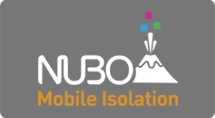In today’s world, remote work is becoming increasingly common. More and more companies are opting to hire remote workers, and many employees are choosing to work remotely as well. Managing a remote team presents unique challenges, including maintaining productivity and quality. In this article, we will provide 10 tips for managing a team of remote workers while keeping productivity and quality high.
- Set Clear Expectation
One of the most important things you can do when managing a remote team is to set clear expectations. This includes setting expectations for work quality, deadlines, communication, and availability.
Make sure that your team members understand what is expected of them, and that they have the tools and resources necessary to meet those expectations. This can help to ensure that everyone is on the same page and working towards the same goals.
- Use Technology
Technology can be a valuable tool for managing a remote team. There are a variety of tools available, including project management software, communication tools, and time tracking software.
Make sure that you use technology that is easy to use and accessible to all team members. This can help to streamline communication and collaboration, and can make it easier to track progress and manage deadlines.
- Establish Regular Check-Ins
Regular check-ins are essential for managing a remote team. This can include weekly or monthly meetings, as well as daily check-ins.
During these check-ins, make sure to discuss progress, goals, and any issues that need to be addressed. This can help to keep everyone on track and ensure that deadlines are being met.
- Provide Feedback and Recognition
Feedback and recognition are important for all employees, but they can be especially important for remote workers who may not have as much interaction with their colleagues and supervisors.
Make sure to provide regular feedback and recognition to your team members, including positive feedback for a job well done and constructive feedback for areas that need improvement. This can help to keep team members motivated and engaged.
- Encourage Collaboration and Teamwork
Collaboration and teamwork are important for any team, but they can be especially important for remote teams. Encourage collaboration and teamwork by providing opportunities for team members to work together on projects and by using tools that facilitate collaboration.
This can help to build a sense of camaraderie and can make it easier for team members to support each other and work towards common goals.
- Establish Boundaries
When managing a remote team, it can be difficult to establish boundaries between work and personal life. It’s important to establish boundaries and encourage team members to set their own boundaries as well.
For example, you may decide that team members should avoid sending work-related messages or emails outside of regular working hours. Encouraging team members to establish their own boundaries can help to prevent burnout and maintain work-life balance.
- Be Flexible
Flexibility is key when managing a remote team. Recognize that remote workers may have different schedules and working styles. Be flexible and accommodating where possible, while still maintaining standards for quality and productivity.
For example, some team members may prefer to work early in the morning, while others may prefer to work later in the day. As long as deadlines are met and work quality is maintained, it’s important to be flexible and accommodate different working styles.
- Provide Training and Development Opportunities
Remote workers may not have the same opportunities for training and development as in-office workers. It’s important to provide remote team members with opportunities for training and development.
This can include online courses, webinars, or even mentoring or coaching programs. Providing training and development opportunities can help to keep team members engaged and motivated, while also improving their skills and knowledge.
- Establish Clear Communication Guidelines
Clear communication is essential for managing a remote team. Establish clear guidelines for communication, including which communication tools should be used and when.
For example , you may decide that team members should use instant messaging for quick questions and email for longer messages. Make sure that all team members are aware of the communication guidelines and encourage them to adhere to them.
- Foster a Positive Company Culture
Finally, it’s important to foster a positive company culture when managing a remote team. This can include regular team-building activities, recognition and rewards for team members, and a focus on work-life balance.
Creating a positive company culture can help to build morale and motivate team members to work towards common goals. It can also help to prevent burnout and turnover, which can be especially important when managing a remote team.
In conclusion, managing a team of remote workers requires a different set of skills and strategies than managing an in-office team. By following the tips outlined in this article, you can help to ensure that your remote team remains productive and focused on delivering high-quality work. Set clear expectations, use technology to facilitate communication and collaboration, establish regular check-ins, provide feedback and recognition, encourage teamwork, establish boundaries, be flexible, provide training and development opportunities, establish clear communication guidelines, and foster a positive company culture. With these tips in mind, you can successfully manage your remote team and achieve your business goals.










